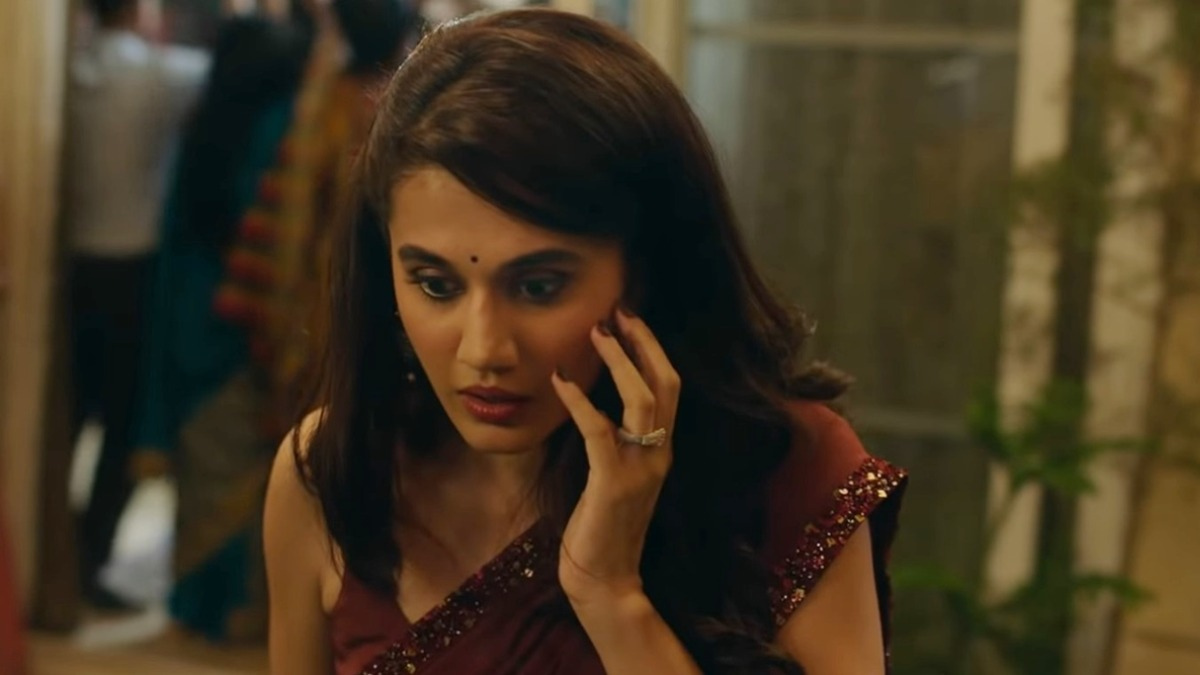‘So just one slap then?‘ Asked the lawyer.
‘Just a slap, but he can’t hit me.‘ She replied.
This is a pivotal scene in the Indian Hindi language film Thappad, which means ‘slap’ in Hindi. The story is about how the world of a happily married, urban Indian woman comes crashing down when, in a heated moment at his job promotion party in their home, her loving husband gives her a resounding slap in full view of family and friends when she tries to free him from an altercation with his boss.
The incredulous tone in the lawyer’s question is because Amrita, the protagonist, has filed for divorce because of that one incident. The film brilliantly explores this incredulousness in the form of the tension between the so-called insignificance of one physical slap on the one hand and the enormity of what it actually symbolised on the other. One can imagine the typical rationalisation of the act by well-wishers… ‘It was in the heat of the moment. You know he loves you.‘ ‘Let it go. Women have to learn to tolerate.‘ Like this film brought out so clearly, most of us don’t notice these power imbalances that are ‘tolerated’ not just because they are subtle but also because they have never been questioned.
Power structures gain their longevity when the status quo is maintained. Questioning both is at the heart of every battle. Oftentimes, the questions asked are, ‘but at what cost?’, ‘wouldn’t it be easy to just carry on the way it is?‘ But, easy is not always right. Movements and activists happen to history when people realise that the cost of not resisting is greater than whatever the gain is in carrying on as it were.
Epictetus, the Stoic philosopher, repeatedly told his students to ask ‘ta eph’hemin, ta ouk eph’hemin’ which means ‘what is up to me, what is not up to me?‘ I think more than helping decide ‘what’ battles one should engage in, this is a good lens to decide ‘how’ one should engage. The most obvious thing to do is determine one’s immediate circle of influence and start there. Like T. M. Krishna (TMK), the activist musician of Carnatic Music — a classical music form of India — did. The Carnatic music world is notorious for being casteist, favouring Brahmins — the uppermost caste in the Indian social order. It is also exclusionary, eclipsing other art forms of south India and not welcoming of marginalised communities. Like every social microcosm is reflective of larger social issues, this musical space too reflects the India of today. A brilliant musician and a Brahmin himself, TMK continues to challenge the power structures of the Carnatic music milieu thereby battling for an inclusive culture through what he knows best — music.
In Chennai city (the bastion of Carnatic music), he founded an annual music festival that is a platform for other not well known south Indian art forms; performed with a marginalised transgender community; and performed at a peace concert in a synagogue wearing a yarmulke, with Arabic songs set to Carnatic music! Expectedly, many in the Carnatic music world are upset with him, their feelings best encapsulated by what someone I know said ‘Why can’t TMK just sing!‘
Ravish Kumar was often called the last standing journalist of Indian traditional media before he quit the TV news channel he was working for. Because he asked uncomfortable questions, despite being one of the most senior journalists of the country, he was not granted face time with the powers that be. Undeterred and departing from norm, he reported stories in prime-time news that created awareness about the ground realities of citizens’ lives and shone a light on the performance of the government. Even when his questions were not being answered.
Pitting themselves against established social norms and power structures, do these courageous souls suffer bouts of self-doubt or fear? Don’t they sometimes wonder, ‘yes, but towards what end?‘ In Thappad, when Amrita asks her father if she is doing the right thing, he guides her with these wise words ‘We do something because we understand it to be right. But the result of doing the right thing may not always be happiness.‘ So perhaps they don’t tie themselves to the outcome. In his acceptance speech for the Ramon Magsaysay award remarking on the crisis in media today, Ravish Kumar said of young journalists, ‘It is possible that they may lose the battle, but there is no other way left apart from resistance. Not all battles are fought for victory — some are fought to tell the world that someone was there on the battlefield.‘
Featured image: Amrita / Thappad movie































